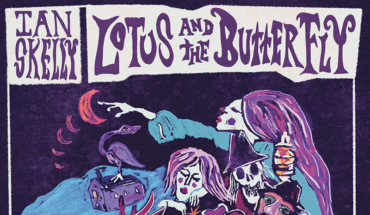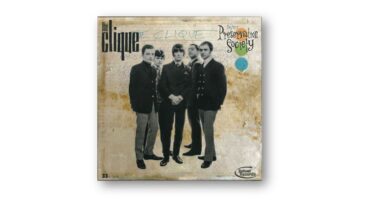Fly Rasta, released on the 14th April, is the fifth studio album from reggae-legend Bob Marley’s eldest son; Ziggy Marley. Known not just for his music, Ziggy is a true philanthropist; having worked with the United Nations, as well as founding the global children’s foundation URGE (Unlimited Resources Giving Enlightenment). The love and goodwill Ziggy shows through his philanthropy also shines through on the album; the innovative blend of reggae with elements of rock, funk, soul and pop makes for a happy-go-lucky hybrid album.
The lead track ‘I Don’t Wanna Live On Mars’, although possibly my favourite track on the album, “pardon the pun” doesn’t really blast off. It’s mainly my favourite because it’s so bloody catchy you’ll struggle to get it out of your head. A catchy guitar riff and chorus transform what essentially sounds like kids’ music into what could easily become a cult-hit. The song is supposedly an ode to Mother Earth, and once you read that it really does make sense; the song takes on meaning and reveals itself in another light. The problem is that if you’re just listening to the track its unlikely you’ll have read the press release; without that vital information the lyrics remain banal and frankly slightly stupid.
The album title track ‘Fly Rasta’ is possibly the track most true to the reggae Marley is known for. Musically, the song is an inspirational ska anthem; featuring the legendary sixties toaster U-Roy. Unfortunately, the chorus is mind-numbing – the words Fly Rasta will haunt my girlfriend and I forever more.
The folk-esque ‘Lighthouse’ provides a real change in tempo, the steady rhythm accompanied by the passionate vocals fuse to create a track reminiscent of a hymn. Like many songs on the album, listen to it long enough and you’ll convince yourself it’s a great song; musically ‘Lighthouse’ is one of the better songs, but you just can’t help feeling the lyrics have no meaning. “I’m holding up the fire, I’m lighting up the sky” – Well no shit Sherlock, that’s what lighthouses tend to do.
‘Sunshine’ is musically inoffensive and lyrically clichéd, the chords coming from the sitar rolling intermittently through the track are, however, one of the album’s highlights. ‘Moving Forward’ is terrible; yet another dreadful chorus constantly repeated, with the odd lacklustre line or two of lyrics occasionally breaking it up. The funk rock that is ‘You’ would be one of the better songs on the album, where it not for the ever-present monotony of the The Melody Makers’ backing vocals.
The acoustic ‘So Many Rising’ is a welcome reprieve from the majority of the album. The song provides an insightful social commentary; highlighting much that is wrong with our world. Yet again, however, an irritating chorus infuriatingly ruins the track. ‘I Get Up’ is another track with a thoughtful message about the state of the world. Yeah, you guessed it – the chorus flushes the whole song down the toilet.
‘You’re my Yoko’ and the album’s sign off track, ‘Give It Away’, are shining gems in a rather murky album. Lyrically, they’re nothing special, but the combination of great rhythms with soft vocals, and the notably less invasive choruses make for some quite enjoyable listening.
In terms of the actual raw music, the album is great. Even the lyrics on the most part, whilst nothing revolutionary or particularly deep, don’t particularly detract from the songs. The problem it has is the overwhelming number of unlistenable choruses, many of which can be attributed to the lack of vocal identity presented by The Melody Makers. Ziggy Marley is a great musician, and a great man; I can really see what he was trying to do with this album – broadening the realms of reggae really is an amicable ambition. The truth is, however, that he has very much failed. Unsurprisingly, when you consider some of his previous work, quite a few of the songs sound like they were written for kids. I doubt the album will do particularly well, and it may even slightly dent Ziggy’s reputation for now, but I think it’s safe to say that we can expect him to return to form in the future.





